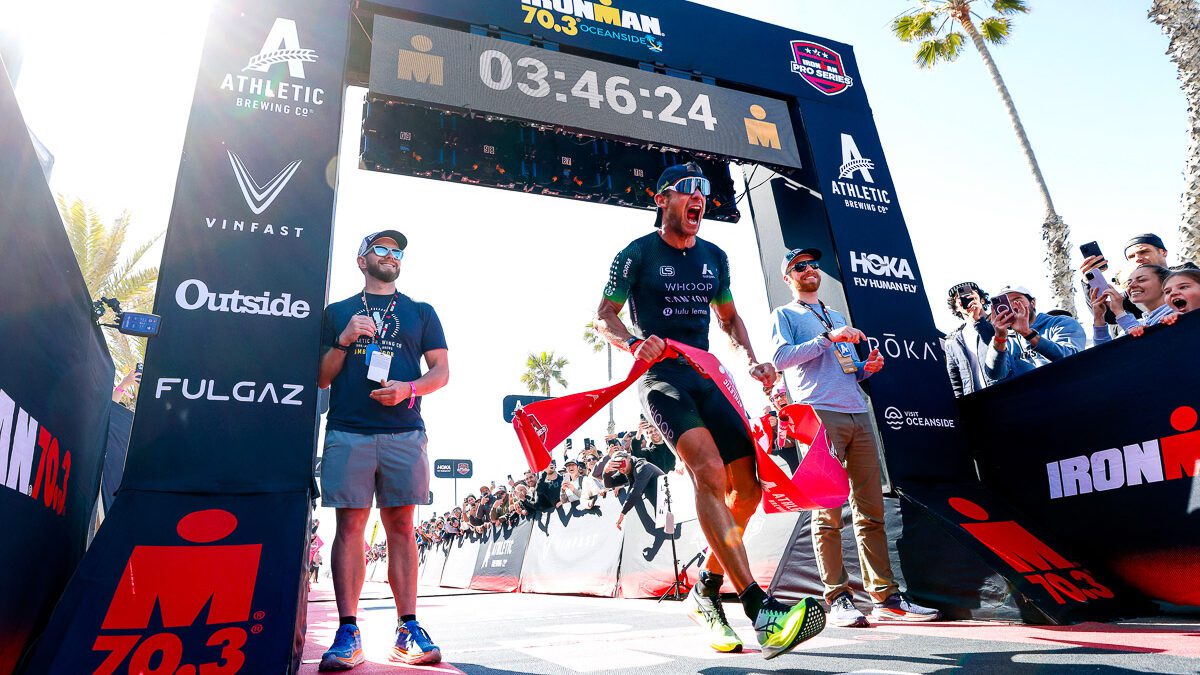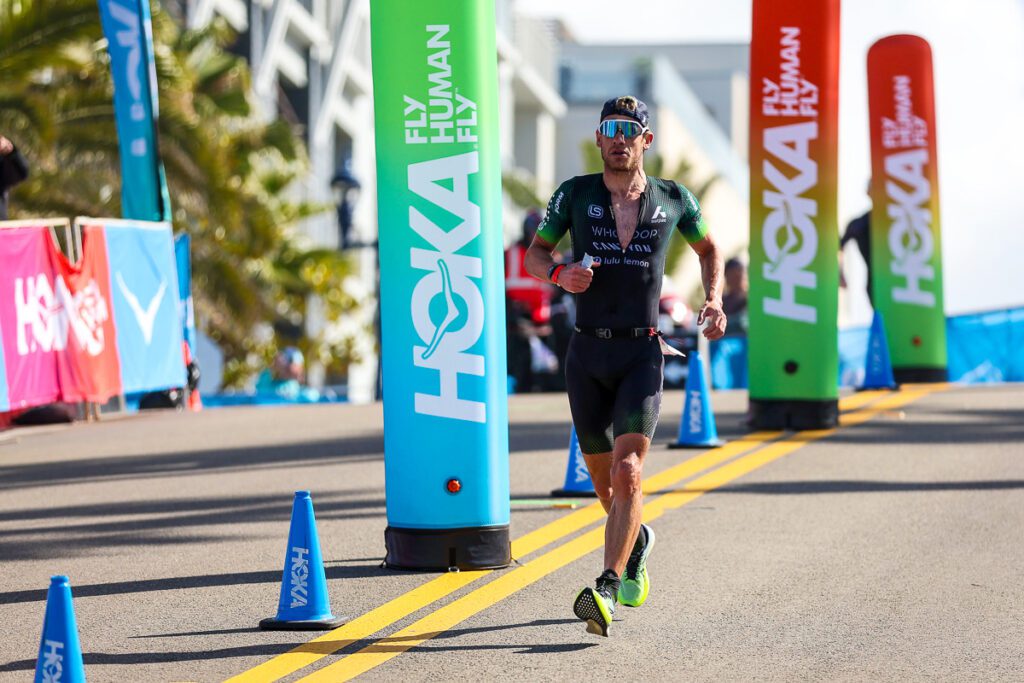How Lionel Sanders rebuilt himself to return to the top of the podium
A newfound dedication to training and an improved "team" helped the Canadian to one of the "most satisfying" performances of his career
 Photo by:
Sean M. Haffey/Getty Images for Ironman
Photo by:
Sean M. Haffey/Getty Images for Ironman
Let’s just be clear – it wasn’t as if Lionel Sanders was any sort of slouch as a pro triathlete over the last few years. That said, compared to the heady results he’d attained during his 14-year career as a triathlete, the last few years hadn’t been as successful.
That all changed last Saturday when he put together one of the best performances of his career to take the win at Ironman 70.3 Oceanside. (Sanders ranks the race up with his runner-up finish at the 2017 Ironman World Championship and his third-place finish behind Jan Frodeno and Andy Potts in Oceanside in 2014.)
In a video posted earlier today (see below), Sanders outlined to his videographer, Talbot Cox, some of the keys that helped him return to the top.
Lionel Sanders charges to huge win at Ironman 70.3 Oceanside
A new team
After his third-place finish at Ironman 70.3 Augusta last September, Sanders decided that he was in need of a change if he was to get back to “racing to his potential.”
“What’s wrong,” he asked himself. He decided he needed to get some more help. “You can’t achieve peak performance without a team.”
Now he’s confident that he’s got the right people helping him.
“I have assembled a team around myself that I can trust,” he said.
Complete focus
“I felt such mediocrity after Ironman 70.3 Augusta,” Sanders said. “I felt I wasn’t giving it my all. After Augusta (I thought) ‘I can’t talk anymore, I have to act.'”
Sanders said that he had a conversation with his wife, Erin, about whether or not he had the “capacity” to train like his younger competitors.
“The foundation of what’s been missing,” he said, was the “complete dedication to the craft and a dedicated support crew.”
Heading in to the race in Oceanside, Sanders put together “13 weeks of focussed training.”
For Sanders this commitment required a lot of faith.
“When you fully dedicate yourself to something, if you fail, it means you fail,” he said. It was a commitment he felt he needed to make as he neared the end of his career. “I’m 36 years old – I am acutely aware that this is going to come to an end. I can’t do this forever. I’ve got no time to mess around.”
Improved swim
Sanders has been swimming a lot – earlier this year he reported that he’d been swimming seven days a week, averaging 40,000 yards every week. In Oceanside he had one of the best, if not the best, swims of his career.
“My start speed has improved,” he said, explaining that he started by himself over to the left of the start line, then moved to the centre of the group a few hundred metres into the race. He also said that he was much more “assertive” in the group than normal. It all added up to a deficit of 1:38 from the leaders – a breakthrough day.
Impressive watts on the bike
While Sanders didn’t lead off the bike, he stayed with Sam Long on the bike. That’s a big change from last year, where he found himself struggling to stay with the American.
“Don’t get dropped on the bike this time,” Sanders kept telling himself.
That wasn’t easy, though. Sanders said that he would regularly be “pushing 430 watts up the hill and Sam was pulling away.
“I was on the ropes for, literally, an hour,” he said.

Smart tactics on the run
Sanders said that he remained patient during the early part of the run, especially since the pace didn’t feel too fast.
“I hadn’t been running in the carbons (carbon-plated shoes) very much, so the pace felt very controlled,” he said.
Running without a watch, Sanders listened to his body.
“The race, for me, was to the final turnaround,” he said. He felt that if he could hold Long off until that point, the American wouldn’t be able to catch him.
Staying the course
Sanders said he has learned from the controversial decision he made in 2017 to leave his coach at the time, David Tilbury-Davis, just weeks after his runner-up performance at the Ironman World Championship in Kona. (He would work with Tilbury-Davis again a few years later.) Now rather than making any changes, Sanders said he’s going to continue with the program that’s been working. Next up is Ironman 70.3 St. George, and after that he’ll start building his Ironman training as he prepares for Ironman Lake Placid.
“I truly believe that we’re going to get better every race,” he said. “It’s a relief to know we’re on the right path now.”
Whether or not Sanders will try to compete for the Ironman Pro Series remains up in the air – he said that he’s not sure he’ll be able to get three Ironman races (including Kona). The pro series points system will benefit those who can post three Ironman race results.
